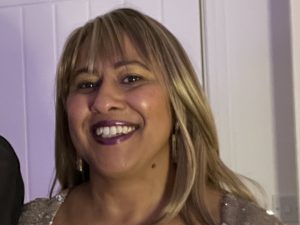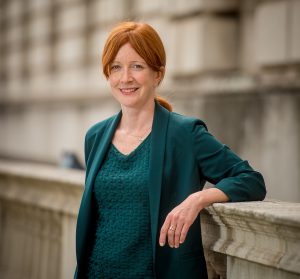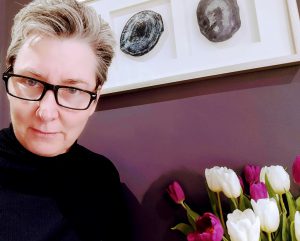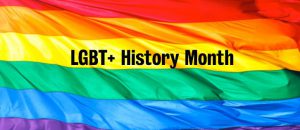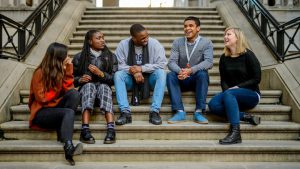Content Warning: This blog contains references to rape & sexual assault that some readers my find upsetting.
The writer wishes to remain anonymous and protect the privacy of those whom the story is about so no names are given and instead ‘our/my daughter’ and ‘she’ are used. The names of others are also changed.
My daughter was raped.
I have been thinking that every few minutes for the last few months whilst carrying on as normal on the outside.
I guess the nature of life-changing moments is no one knows they are life-changing until afterwards.
A Tuesday in June 2021.
I sat on my sofa, teeing up Ru Paul’s drag race to watch with my daughter.
My 17-year-old daughter.
Just as I was about to press play, with her sat beside me as usual in her usual cosy spot. The spot where she is comfy and out of my eyeline as I recline/cuddle up on the sofa – She says ‘I need to tell you something’.
I somehow knew in that moment it was going to be ‘big’.
I can’t actually remember exactly what she said because I wasn’t paying full attention. It was something like “I’m going to tell the teachers at school something tomorrow” and they’ll tell you or ask me if I have, so I’m telling you now.
Ok I said – what?
She mumbles something about talking about David. David was her boyfriend.
We’ve been in a national pandemic for what 14 months. At the start of the pandemic, she was going out with a different boy.
All through the first lockdown they chatted on the phone but didn’t see each other much. I didn’t think so much about that because well, it was a national lockdown, and we were supposed to limit contact. And I have this generally dismissive – they’re teenagers, how seriously should I take it – kind of mindset.
Anyway, not long after that lockdown lifted, (I found out some time later) she finished with boy 1. At some point she and David appeared inseparable, on the phone all hours of the day and night. Teenage infatuation and love I thought. Quite pleased that she had these functioning relationships. Boys her own age, boys who were studying and seemed serious about the future. Boys who, when I met them, whilst teenage and natural were also respectful. Boy 1 was more so than David, but David seemed fine. Every Friday night she headed off to spend the evening on Tooting Common as that’s where she was allowed to hang out – no indoor meetings allowed in these months of 2021.
Anyway, back to that Tuesday.
About David – hearing about things he did that I didn’t like.
What is the right response to that?
I have, in my day job a role in prevention, support and action to prevent sexual misconduct, harassment and violence. I have been saying we must have a trauma informed response. This terrible thing has happened and we must not make the reporting, the sharing, the aftermath worse than the thing itself.
These have been my words – in the abstract.
I am a rape and multiple assault survivor myself.
I felt that I was qualified to talk about these things. I understood.
Here I am in the moment.
My own daughter is ‘making a disclosure’. I sit frozen on the sofa.
Mostly my mind is saying can I just press play and watch Drag Race? My mind both racing and frozen says something like,
‘What do you mean?’
No real response a bit of mumbling.
I look at my daughter. I actually now can’t remember much more. I am trying to decide how to respond. Do I scream, cry, grab and hug her? Outwardly, I do very little. I say something like what do you want to happen? I think (I hope) in a calm, supportive empathetic voice. I am trying all at once to show her that I love her, that I care and accept her and that don’t blame her.
I want him not to be able to be in my lessons, so I don’t have to see him.
I said something like,
“are we talking about sexual assault?”
Some physical or audible reaction that confirms yes.
If we are then they might ask you if you want to report it to the police. They might have no option but to report it to the police. Are you prepared for him to be arrested?
I am fairly sure now at this point I am looking at her, my practical, problem-solving, process side has kicked in. I wondered then, and I wonder now, what she perceived in that moment. Did she think I was upset, angry, blaming her? Ashamed?
After few more moments silence her dad comes in, brings me a cup of decaffeinated tea. He still lives in the world before. The world when life was just about cups of tea and Drag Race. I say to her shall I play? And we watch Drag Race Down Under.
I now don’t know what I did next. I don’t know whether I told my partner, or not. I don’t think so. I didn’t tell anyone. I go into the daze that is now my head.
The evening as far as I remember carries on as normal – tv, bed, sleep.
Next morning, routine.
During this weird year I have taken started some regular, daily yoga and meditation. I force myself into that that Wednesday morning. As I am sitting there, I know I need to see her before she leaves for school.
I go into her room.
I say something like
‘I love you, I am here to support you. There is nothing you can tell me that will make me stop loving you. Whatever you decide to do will be right.’ We hug.
She goes off to school, I switch on for work.
It’s already an odd week as on the Thursday (tomorrow) we have a day off and some ‘couple time’ booked.
Work that Wednesday was full of things I felt I couldn’t not do. I was chairing an interview panel – non-negotiable. The afternoon – an onsite activity that was the culmination of many months of work at King’s.
What kind of monster am I that I just carried on as normal?
About 1250 I get a call. I am trying to wrap an interview up. I am also trying to get out of the door to ensure I am on time for my afternoon’s appointment.
It’s the deputy head of sixth form. Can you come in straight away? Your daughter has told us something we need to talk about.
What do you think I said? Of course – I’ll be there as soon as I can?
No – I said.
No. I’m sorry I have a work thing I can’t avoid. It literally is the first time in months that is true. I think at that moment I truly believe it’s true I can’t not go to this thing. I also now realise I didn’t want to hear whatever else was coming.
What about tomorrow? Oh yes, we can come tomorrow. Tomorrow is better than today. First thing. My brain catches up. Oh no sorry – this is going to sound ridiculous but we have ‘plans’. At first it seems to me like those plans are fixed and can’t be changed.
In my mind there is this cold, hard logic. This has already happened.
That I take it seriously and believe her.
This also isn’t presenting an immediate risk. That’s how we categorise things isn’t it – risk?
Somewhere in my mind my logic is that nothing is going to get worse because of when we meet, so I don’t need to change my plans. Even as I type that, my own lack of compassion, my own lack of care makes me feel sick.
Have I told her dad yet? Can’t remember.
Have I told anyone? Nope.
I go to the work event.
I meet my friend and we go for drinks and dinner – yep, all normal.
Anyway, at some point we cancel our next day plans. I email the school. We can actually come in first thing.
I wrote the majority of this some 3 weeks later. I am horribly hungover. I managed to stop drinking before I was sick. But I feel nauseous this morning. I am retching bile. I am alone. It is so hot and sweaty. I am beyond uncomfortable in so many ways.
I presumably tell her dad at some point that Tuesday night? I have no memory of this now.
We go to school. We get the Tube. This now seems insanity as later we will have to come home on the Tube too – once we have heard. On the Tube you must maintain normality. In our car, our shock and grief might have come out more easily.
We go to school.
We go into a private office. We are wearing masks. We are still in a pandemic.
The two teachers sit a distance away. Would they always have done this? Or were they social distancing. I ask if we need to wear masks. No, its ok they say. We’ll keep our distance.
They talk. They are very kind. They are very clear and measured. I will always be grateful for how much I felt they knew what they were doing, for them believing and supporting her.
She has told them things. She and another girl have told them similar things. About David forcing her. Forcing her without her consent. Unprotected forced sex. David hitting her. David controlling her. The say they won’t give me, can’t give me, don’t think they should give me the details.
This is still the case – I don’t know the details. The not knowing is both a blessing and a curse – without details I am able to rationalise this into something not so bad – what is good rape exactly?
Did it happen in our house? We let him sleep over – the first boy that was allowed to stay in her room with her. Did it happen at the Common? Does it matter where it happened? Where what happened, I ask myself?
Without details I can make this the version I want it to be.
Without details though my mind can create the worst pictures imaginable too.
I ask the teachers a lot of questions.
That is what I do when in a crisis.
Who knows?
What will happen now?
Will the police be involved?
Are there pictures? Videos?
What are they doing in the short term about David?
What will happen in the longer term?
Has my daughter had any kind of medical check? STDs?
They answer.
They are describing my baby as having been in an abusive and coercive relationship.
She is 17.
She is a baby.
She is my baby.
How has this happened? How did I not stop this happening?
Since then, I have been obsessed with ‘memories’ on my phone – seeing her and siblings as cheerful, lively children. All the fun and joy we have had in our lives.
How did I manage to let this happen? My most basic job is to keep her safe and healthy.
I am calm inside and out, somehow; I am like a machine asking questions clarifying what to do.
I think I believe I can organise this into order and make it something that can be dealt with in an orderly fashion.
We are in the office for what seems like a decade. So many questions. It’s a pandemic and so no cups of tea – maybe there is a glass of water. I don’t remember.
Eventually we leave. The teachers are going to do things, they are going to coordinate/liaise with multiple agencies. They are going to keep us up to date. They are going to tell ‘the girls’ what’s happened.
They are going to get David and his parents into school. Seeking his voluntary withdrawal – if not, they can’t at this time stop him coming to school but will put in place ‘measures’. (He comes in. They agree to him not coming back to school, apparently ever. He is asked to make a statement with his version of events).
We leave the school. It is a warm day – we walk a few steps. We stop – I think he says something. I lean into him – I shed a very contained tear. My little girl was raped. We are stood in full view of the school playground. I feel that if I cry, if I say anything, I might crumble or dissolve. I also can’t bring myself to think or say anything.
We come home.
The afternoon is mechanical. We have the time off work – we were supposed to be out doing nice things. We watch unbelievable trash on TV. Every so often vocalising thought.
I can’t quite believe my thoughts spend so much time thinking about what is going to happen to David. I feel his life is over. He is being accused of multiple assaults and unacceptable behaviour. How will he recover from that? I also ask myself, why do I care? Why do I have any concern for him?
I don’t know.
I speak to my brother. He is a police officer. I ask him what to do, what will happen. Since that day he hasn’t called or messaged me about this – I find this unbelievably hurtful.
It is now nearly 4 weeks later.
Multiple agencies have met.
I have spoken to a social worker.
My daughter has spoken to a social worker.
Do we want an assessment for support? Do we want to be ‘in the system’?
Who is supposed to answer all these questions?
David and his parents came to school – they wanted to move him. He hasn’t been back to school since.
More girls have come forward.
The police have interviewed my daughter.
They have videoed her.
She went alone. She chose to go alone.
The pandemic continues.
School shut early.
We are isolating as her dad gets Covid.
I couldn’t cope. I took myself out of my life for a few days. I went away by myself essentially to pretend this wasn’t happening and to create a new reality. For a brief moment it worked. I want to be there still. In an apartment alone. Spending evenings pretending I have a different life.
I still don’t know what happened to my daughter.
I don’t know what will happen.
I want someone to tell me.
I need to contact MASH (the multi-agency safeguarding team) to get support. I keep forgetting. I must put it on my list of things to do.
I have only told 3 people about what has happened. And I find it impossible to talk about. It changes everything when I tell someone. I am absorbed, suffocated and detached all at the same time by this thing that has happened.
She seems to be doing, ok?
She doesn’t want to talk to me about anything. If we need to talk about ‘it’, it’s very functional, it’s very matter of fact – ‘so and so rang’.
I don’t know what will happen.
I have thought through various pathways and scenarios.
We are waiting now.
What is she thinking? How is she feeling?
I don’t know.
How do I feel?
What will happen?
I don’t know.
3 weeks later – I’m still none the wiser. I wake up each morning – we go through the motions of life. The police interview is tomorrow.
Someone asked me the other day how she is doing. That is the question I ask myself constantly, and the answer comes back – I just don’t know.
Support & Guidance

